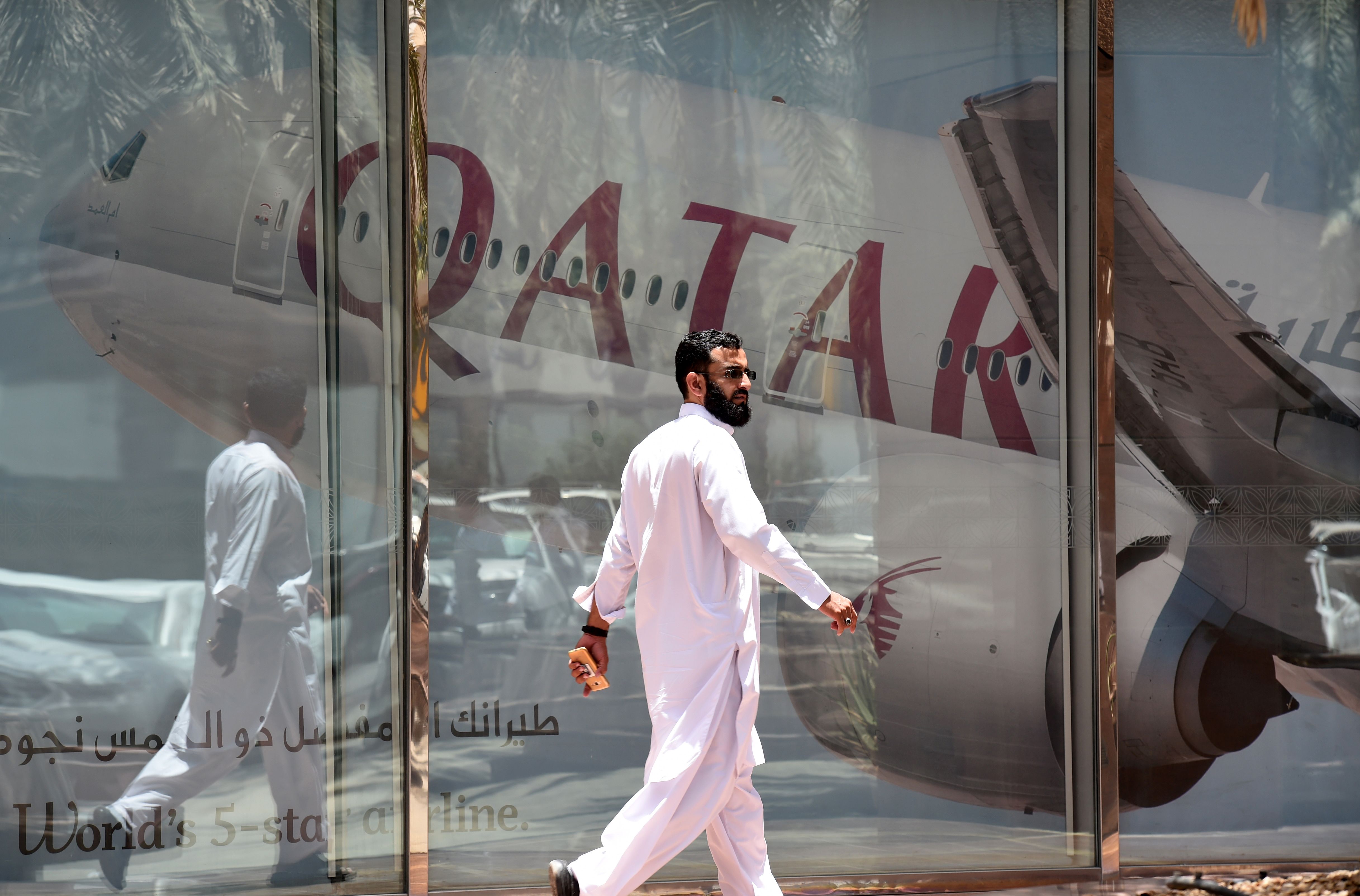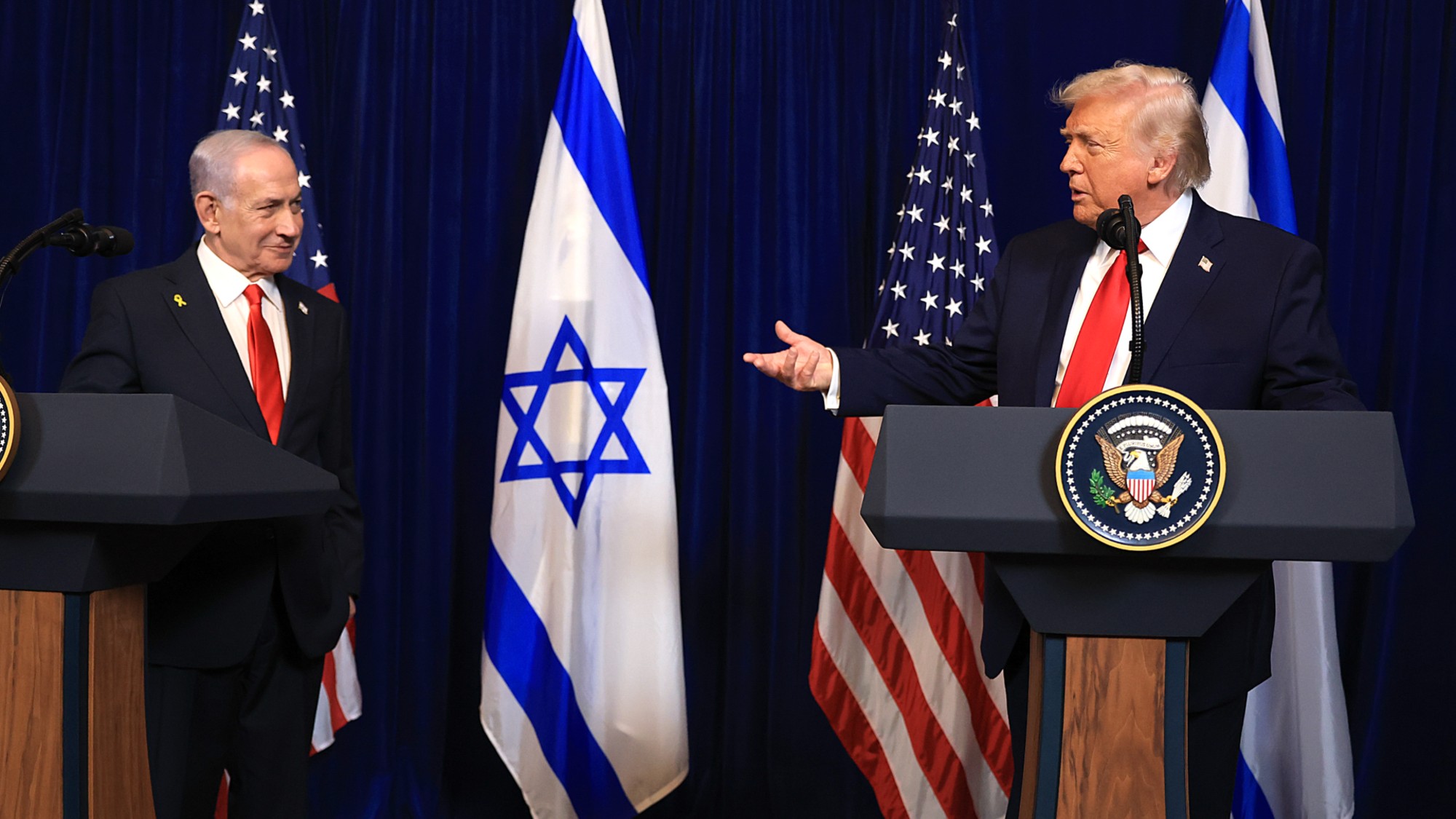Who knew the Middle East could be so complicated?
How Qatar got Trumped


As President Trump might say, who knew the Middle East could be so complicated? Six Arab countries — Saudi Arabia, Egypt, Bahrain, the United Arab Emirates, Libya, and Yemen — have severed relations with the tiny, oil-rich Gulf emirate of Qatar. They haven't just recalled ambassadors, Qataris are no longer allowed to travel to those countries, and the Gulf countries are implementing what looks like a blockade. The dispute therefore ranks as pretty serious — in 2014 a similar row merely involved briefly recalling ambassadors.
The official trigger this time was a report by the state-run Qatar News Agency relaying comments by Qatar ruler Sheikh Tamim bin Hamad Al Thani criticizing mounting anti-Iran sentiment. But obviously there are deeper causes. Qatar supports groups like Hamas and the Muslim Brotherhood, and is somewhat friendly with Iran, the Shiite arch-enemy of the Sunni Gulf monarchies.
More profoundly, undoubtedly, the Gulf monarchies, especially Saudi Arabia, want to hammer down the nail that sticks up. Qatar is tiny: Its population is a measly 2.7 million, yet it is the world's largest exporter of liquefied natural gas. And it has decided to use that money to accrue international prestige and influence. The country has tried to promote itself as a neutral mediator in Middle East disputes, something which is seemingly impossible to do (as this incident shows), and has built links with factions across the Muslim world, from Libya to Afghanistan's Taliban. The Al Jazeera television channel is a Qatari creation, and the country lobbied hard (and, some say, greased palms) to be the host country for the 2022 FIFA World Cup. Qatar also supported Arab Spring uprisings throughout the Middle East (except in Qatar, of course), which was not smiled upon by the autocrats who rode out those uprisings.
The Week
Escape your echo chamber. Get the facts behind the news, plus analysis from multiple perspectives.

Sign up for The Week's Free Newsletters
From our morning news briefing to a weekly Good News Newsletter, get the best of The Week delivered directly to your inbox.
From our morning news briefing to a weekly Good News Newsletter, get the best of The Week delivered directly to your inbox.
Qatar has a U.S. military base and is the host of the United States' vital CENTCOM headquarters, which covers the Middle East and Central Asia, meaning, among other challenges, ISIS, Iraq, and Afghanistan. The country also has a special relationship with France and has invested a lot in the country.
According to a bombshell report by the Financial Times' Erika Solomon, the real trigger for this move was that Qatar paid up to $1 billion (that's billion with a b) in ransom money to an Iraqi al Qaeda affiliate and to Iranian officials to secure the release of members of its royal family who were kidnapped during a hunting trip in Iraq. (Yes, because why wouldn't you go on a hunting trip in Iraq, if you were a royal?) The money came in suitcases, according to an unnamed official quoted in the story.
Though Qatar officially denies it, the country has long been accused of sponsoring terrorism.
While France, a key Qatar ally, has cautiously called for the dispute to be resolved through mediation (Kuwait has offered to help), President Trump, as per usual, has made a mess of things, through a series of tweets that not only suggest the U.S. supports the blockade but was a participant in advance. Supporting a blockade of a country that holds one of your crucial military bases is ... a novel diplomatic strategy.
A free daily email with the biggest news stories of the day – and the best features from TheWeek.com
Now, this might just be a big bluff that ends up with a climbdown that doesn't change much, but it looks real. "Saudi Arabia and the UAE want nothing but complete submission from Qatar," said Mehran Kamrava, director of the Center for International and Regional Studies at Georgetown University in Qatar, to Bloomberg.
The story of Qatar, on its own, doesn't matter immensely, but it highlights two significant trends in global politics.
The first is that many parties around the world feel emboldened to do whatever they want with Trump in the White House. Trump had only to be told that Qatar is a funder of terror and therefore bad for him to condone a pretty brutal move that risks unsettling the precarious balance of power in the Middle East. It reminds me of Dexter Filkins' profile of Defense Secretary Jim Mattis in The New Yorker; its main takeaway is that Trump has essentially outsourced the duties as commander in chief to his defense secretary, allowing the military to essentially do whatever it wants. Even if you thought Barack Obama was too timid in his uses of force, as I did, the U.S. military essentially running on autopilot is still an eyebrow-raising prospect. In many cases around the world, because of the incompetence of the president of the United States, for better or worse, the leash is off.
The second is that the Sunni-Shia conflict splitting and redefining the Middle East is still hardening. The infuriating thing about the Middle East is that, usually, there isn't a single big conflict with two camps, but countless conflicts with many camps along countless spectra — territory, ideology, politics, ethnicity, natural resources, with religion only one of many factors. In that context, a tiny country like Qatar could gain some influence by trying to play all sides all the time. But increasingly, all those micro conflicts are being subsumed into the greater macro-conflict between Iran and its allies and everyone else (witness how basically all Sunni countries are now friendly with, of all nations, Israel). It certainly makes the Middle East easier to understand, but also hotter as conflicts escalate everywhere.
Fun times.
Pascal-Emmanuel Gobry is a writer and fellow at the Ethics and Public Policy Center. His writing has appeared at Forbes, The Atlantic, First Things, Commentary Magazine, The Daily Beast, The Federalist, Quartz, and other places. He lives in Paris with his beloved wife and daughter.
-
 Political cartoons for January 3
Political cartoons for January 3Cartoons Saturday's political cartoons include citizen journalists, self-reflective AI, and Donald Trump's transparency
-
 Into the Woods: a ‘hypnotic’ production
Into the Woods: a ‘hypnotic’ productionThe Week Recommends Jordan Fein’s revival of the much-loved Stephen Sondheim musical is ‘sharp, propulsive and often very funny’
-
 ‘Let 2026 be a year of reckoning’
‘Let 2026 be a year of reckoning’Instant Opinion Opinion, comment and editorials of the day
-
 How Bulgaria’s government fell amid mass protests
How Bulgaria’s government fell amid mass protestsThe Explainer The country’s prime minister resigned as part of the fallout
-
 Femicide: Italy’s newest crime
Femicide: Italy’s newest crimeThe Explainer Landmark law to criminalise murder of a woman as an ‘act of hatred’ or ‘subjugation’ but critics say Italy is still deeply patriarchal
-
 Brazil’s Bolsonaro behind bars after appeals run out
Brazil’s Bolsonaro behind bars after appeals run outSpeed Read He will serve 27 years in prison
-
 Americans traveling abroad face renewed criticism in the Trump era
Americans traveling abroad face renewed criticism in the Trump eraThe Explainer Some of Trump’s behavior has Americans being questioned
-
 Nigeria confused by Trump invasion threat
Nigeria confused by Trump invasion threatSpeed Read Trump has claimed the country is persecuting Christians
-
 Sanae Takaichi: Japan’s Iron Lady set to be the country’s first woman prime minister
Sanae Takaichi: Japan’s Iron Lady set to be the country’s first woman prime ministerIn the Spotlight Takaichi is a member of Japan’s conservative, nationalist Liberal Democratic Party
-
 Russia is ‘helping China’ prepare for an invasion of Taiwan
Russia is ‘helping China’ prepare for an invasion of TaiwanIn the Spotlight Russia is reportedly allowing China access to military training
-
 Interpol arrests hundreds in Africa-wide sextortion crackdown
Interpol arrests hundreds in Africa-wide sextortion crackdownIN THE SPOTLIGHT A series of stings disrupts major cybercrime operations as law enforcement estimates millions in losses from schemes designed to prey on lonely users
